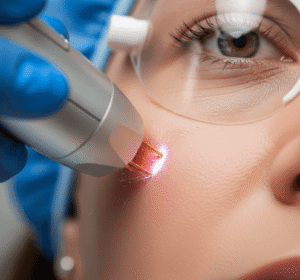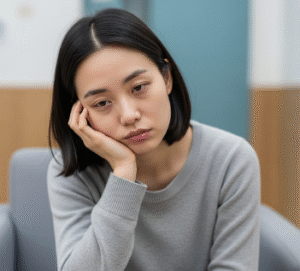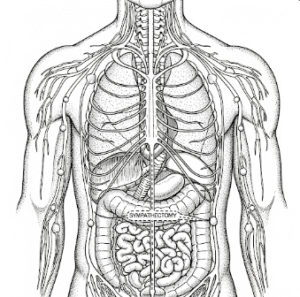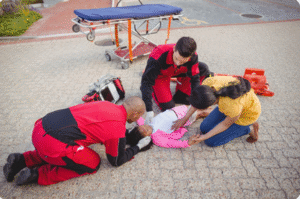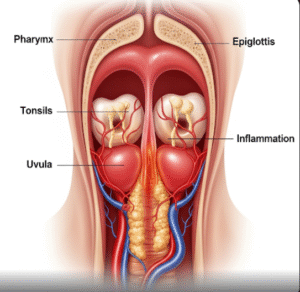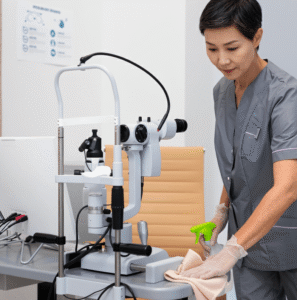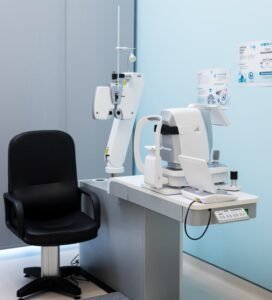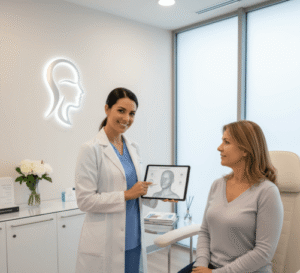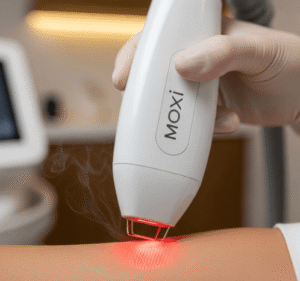➤ Overview
Teenage anxiety refers to excessive worry, nervousness, or fear experienced during adolescence, a period of significant emotional, social, and physical changes. Anxiety in teenagers can range from mild, occasional stress to chronic, debilitating conditions that affect daily life, academic performance, and relationships.
In South Korea, teenage anxiety is increasingly recognized as a critical mental health concern, and evaluation is performed by pediatricians, psychologists, psychiatrists, and school counselors. Early recognition and intervention are essential to prevent long-term mental health challenges, improve coping skills, and support healthy emotional development.
➤ Key Facts
→ Anxiety disorders are among the most common mental health issues in teenagers.
→ Typical triggers include academic pressure, social challenges, family conflicts, hormonal changes, and peer pressure.
→ In Korea, mental health screenings, counseling programs, and school-based support are available for adolescents.
→ Anxiety can affect sleep, concentration, appetite, and social interactions.
→ Untreated anxiety may lead to depression, substance abuse, or chronic stress-related physical issues.
→ Early intervention improves resilience, emotional regulation, and academic performance.
→ Treatment involves therapy, lifestyle adjustments, and in some cases, medication.
➤ What is Teenage Anxiety?
Teenage anxiety is a persistent feeling of worry, nervousness, or apprehension that is disproportionate to actual situations:
→ Normal vs pathological anxiety – Occasional stress is typical, but persistent anxiety affecting daily life may indicate a disorder.
→ Types of anxiety in teenagers –
→ Generalized Anxiety Disorder (GAD) – Chronic worry about various aspects of life.
→ Social Anxiety – Fear of social situations or judgment.
→ Panic Disorder – Sudden, intense episodes of fear with physical symptoms.
→ Separation Anxiety – Extreme distress when away from family or familiar settings.
→ Impact on functioning – Can affect school performance, friendships, and family relationships.
→ Indicator of mental health – May signal underlying psychological or emotional challenges.
➤ What Symptoms are Related to Teenage Anxiety?
Symptoms may manifest in emotional, physical, and behavioral forms:
→ Excessive worry or fear → Persistent thoughts about future events or potential problems.
→ Restlessness or agitation → Feeling “on edge” or unable to relax.
→ Rapid heartbeat or palpitations → Physical reaction to anxiety.
→ Shortness of breath or dizziness → Somatic symptoms of heightened stress response.
→ Sleep disturbances → Difficulty falling asleep, staying asleep, or experiencing nightmares.
→ Muscle tension or headaches → Physical signs of chronic stress.
→ Avoidance behaviors → Skipping school, avoiding social events, or refusing activities.
→ Irritability or mood swings → Emotional instability affecting relationships.
→ Difficulty concentrating → Impact on learning, academic tasks, and decision-making.
➤ What Causes / Possible Causes?
Teenage anxiety arises from a combination of genetic, psychological, environmental, and social factors:
→ Genetic predisposition – Family history of anxiety or mood disorders.
→ Brain chemistry and neurotransmitters – Imbalances in serotonin, dopamine, or GABA.
→ Hormonal changes – Puberty can increase vulnerability to stress and anxiety.
→ Academic pressure – High expectations in school and exams.
→ Social stressors – Peer pressure, bullying, or social media influence.
→ Family dynamics – Overprotective or critical parenting, conflict, or lack of emotional support.
→ Trauma or adverse experiences – Abuse, loss, or significant life changes.
→ Personality factors – Perfectionism, sensitivity, or low self-esteem.
➤ When Should I See My Doctor?
Professional evaluation is recommended if anxiety is:
→ Persistent or worsening → Lasting several weeks or months and interfering with daily life.
→ Affecting school, friendships, or family relationships → Impairs normal functioning.
→ Accompanied by panic attacks, self-harm thoughts, or severe distress → Urgent intervention needed.
→ Causing physical symptoms → Headaches, stomachaches, or fatigue that disrupt daily activities.
→ Not responsive to self-help or lifestyle strategies → Requires structured therapy or medication.
→ In Korea, teenagers can access pediatric mental health clinics, counseling centers, and school-based psychological services for early assessment and support.
➤ Care and Treatment
Management of teenage anxiety includes psychological, lifestyle, and medical interventions:
→ Cognitive Behavioral Therapy (CBT) → Helps teens identify and change negative thought patterns.
→ Mindfulness and relaxation techniques → Meditation, breathing exercises, and yoga to reduce stress.
→ Lifestyle adjustments → Regular exercise, balanced diet, consistent sleep, and reduced screen time.
→ Family support and counseling → Strengthen communication and coping strategies at home.
→ School interventions → Academic accommodations, stress management programs, and peer support groups.
→ Medication (if necessary) → Selective serotonin reuptake inhibitors (SSRIs) or other anti-anxiety medications under medical supervision.
→ Monitoring and follow-up → Ensures treatment effectiveness and prevents recurrence.
➤ Treatment Options in Korea
South Korea provides comprehensive mental health care and specialized services for teenage anxiety:
Diagnosis in Korea
→ Psychological assessment – Screening tools, questionnaires, and clinical interviews.
→ Behavioral evaluation – Observe anxiety triggers, coping mechanisms, and social interactions.
→ Medical tests – Rule out physical conditions that may contribute to anxiety symptoms.
Medical Treatments in Korea
→ Psychotherapy – CBT, family therapy, and group counseling tailored to adolescents.
→ Medication management – Prescribed under strict pediatric psychiatric supervision.
→ Stress management programs – Mindfulness, relaxation, and resilience training in schools and clinics.
Advanced Therapies in Korea
→ Cognitive training and biofeedback – Techniques to improve emotional regulation and reduce physiological stress responses.
→ Multidisciplinary care – Collaboration between psychiatrists, psychologists, pediatricians, and school counselors.
→ Online and telehealth support – Accessible mental health services for teenagers with travel or privacy concerns.
Rehabilitation & Support in Korea
→ Follow-up sessions to monitor progress and prevent relapse.
→ Education on coping strategies, time management, and social skills.
→ Peer support groups and workshops to reduce isolation and build resilience.


